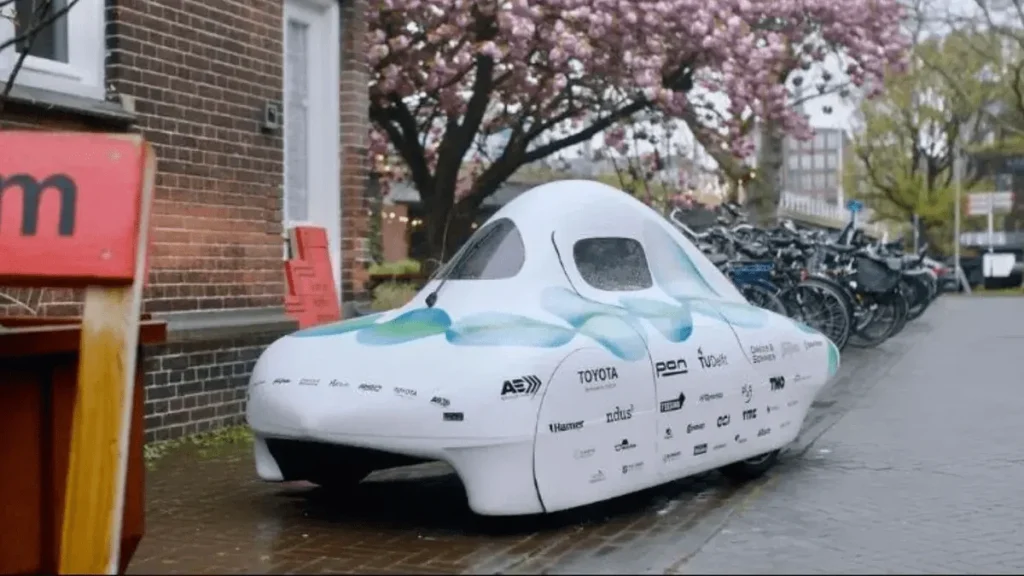As the world grapples with the pressing need for sustainable transportation solutions, hydrogen-powered cars are emerging as a promising alternative. These vehicles, which utilize hydrogen fuel cells to generate electricity, offer a clean and efficient means of travel. With the growing concerns over climate change and air pollution, the question arises: could hydrogen-powered cars be the next big thing in sustainable transportation? In this article, we will delve into the technology behind hydrogen fuel cells, their environmental benefits, and the challenges that lie ahead in their widespread adoption.
Throughout this exploration, readers will gain insights into how hydrogen-powered vehicles operate and the advantages they hold over traditional gasoline and electric cars. We will discuss the infrastructure required for hydrogen refueling, the advancements in fuel cell technology, and the role of major automotive manufacturers in this evolving landscape. Additionally, we will highlight real-world examples of hydrogen-powered cars currently on the market and their performance metrics, providing a comprehensive overview of their potential impact on the automotive industry.
As we navigate through the intricacies of hydrogen-powered transportation, we invite you to join us in uncovering the future of mobility. Will hydrogen fuel cells revolutionize the way we think about cars? What are the implications for our environment and economy? Stay with us as we answer these questions and more, shedding light on why hydrogen-powered cars may indeed be the key to a sustainable future.
As the world grapples with the pressing need for sustainable transportation solutions, hydrogen-powered cars have emerged as a promising alternative to traditional fossil fuel vehicles. This article delves into various aspects of hydrogen-powered vehicles, exploring their potential to revolutionize the automotive industry.
Understanding Hydrogen Fuel Cell Technology
Hydrogen fuel cell technology is at the heart of hydrogen-powered vehicles. These vehicles utilize a fuel cell to convert hydrogen gas into electricity, which then powers an electric motor. The process emits only water vapor as a byproduct, making it an environmentally friendly option. Fuel cells operate through an electrochemical reaction, where hydrogen and oxygen combine to produce electricity, heat, and water.
This technology offers several advantages over conventional internal combustion engines, including higher efficiency and lower emissions. As advancements in fuel cell technology continue, we can expect improvements in performance, durability, and cost-effectiveness, making hydrogen cars more accessible to consumers.
Environmental Benefits of Hydrogen Cars
One of the most significant advantages of hydrogen-powered cars is their potential to reduce greenhouse gas emissions. Unlike gasoline or diesel vehicles, hydrogen cars produce zero tailpipe emissions, contributing to cleaner air and a reduction in urban pollution. This aligns with global efforts to combat climate change and promote sustainable living.
Moreover, hydrogen can be produced from various renewable sources, such as wind, solar, and biomass, further enhancing its sustainability. By transitioning to hydrogen as a primary fuel source, we can significantly decrease our reliance on fossil fuels and mitigate the environmental impact of transportation.
Infrastructure Challenges for Hydrogen Adoption
Despite the benefits, the widespread adoption of hydrogen-powered cars faces significant infrastructure challenges. Currently, the network of hydrogen refueling stations is limited, making it difficult for consumers to transition from conventional vehicles. Expanding this infrastructure is crucial for the success of hydrogen vehicles.
Governments and private companies are investing in the development of hydrogen refueling stations, but progress is slow. A comprehensive strategy that includes incentives for building infrastructure and partnerships between stakeholders is essential to overcome these challenges and promote the growth of hydrogen-powered transportation.
Economic Viability of Hydrogen Vehicles
The economic viability of hydrogen-powered cars is a critical factor in their adoption. While the initial cost of hydrogen vehicles is often higher than that of traditional cars, the long-term savings on fuel and maintenance can offset this expense. Additionally, as technology advances and production scales up, the costs of hydrogen vehicles are expected to decrease.
Government incentives and subsidies can also play a significant role in making hydrogen cars more affordable for consumers. By creating a favorable economic environment, we can encourage more people to consider hydrogen vehicles as a viable option for sustainable transportation.
Comparison with Electric Vehicles
Hydrogen-powered cars are often compared to battery electric vehicles (BEVs), as both are considered clean alternatives to traditional vehicles. While BEVs rely on batteries to store electricity, hydrogen cars generate electricity on-demand through fuel cells. This fundamental difference leads to varying advantages and disadvantages for each technology.
For instance, hydrogen vehicles can be refueled in a matter of minutes, similar to gasoline cars, while BEVs typically require longer charging times. However, the range of BEVs has been improving significantly, making them a competitive option. Understanding these differences is crucial for consumers when choosing between hydrogen and electric vehicles.
The Role of Government Policies
Government policies play a pivotal role in the development and adoption of hydrogen-powered cars. Many countries are implementing regulations and incentives to promote clean transportation technologies. These policies can include tax credits, grants for research and development, and funding for infrastructure projects.
By creating a supportive regulatory environment, governments can encourage automakers to invest in hydrogen technology and consumers to adopt hydrogen vehicles. International collaboration is also essential, as the transition to sustainable transportation is a global challenge that requires coordinated efforts.
Future Prospects and Innovations
The future of hydrogen-powered cars looks promising, with ongoing research and innovation driving advancements in technology. Automakers are exploring new materials and designs to improve fuel cell efficiency and reduce costs. Additionally, the integration of hydrogen technology with renewable energy sources presents exciting opportunities for sustainable transportation.
As the automotive industry continues to evolve, we can expect to see more hydrogen-powered models entering the market, catering to various consumer needs. The potential for hydrogen to play a significant role in the future of transportation is becoming increasingly evident.
Conclusion: A Sustainable Future with Hydrogen
In conclusion, hydrogen-powered cars represent a significant step towards sustainable transportation. With their environmental benefits, potential for innovation, and the support of government policies, hydrogen vehicles could become a mainstream option in the coming years. However, addressing infrastructure challenges and economic viability will be crucial for their widespread adoption.
As we move towards a more sustainable future, hydrogen-powered cars may indeed be the next big thing in transportation, offering a cleaner, more efficient alternative to traditional vehicles.
| Aspect | Description |
|---|---|
| Definition | Hydrogen-powered cars use hydrogen fuel cells to generate electricity, which powers the vehicle’s electric motor. |
| Environmental Impact | These vehicles produce only water vapor as a byproduct, making them a clean alternative to fossil fuel-powered cars. |
| Efficiency | Hydrogen fuel cells are more efficient than traditional combustion engines, converting chemical energy directly into electrical energy. |
| Refueling Time | Refueling a hydrogen car takes about 3-5 minutes, similar to gasoline vehicles, which is a significant advantage over battery electric vehicles. |
| Infrastructure Challenges | The lack of widespread hydrogen refueling stations is a major barrier to the adoption of hydrogen-powered vehicles. |
| Cost | Currently, hydrogen cars are more expensive to produce than traditional electric vehicles, but costs are expected to decrease with advancements in technology. |
| Market Adoption | While still in the early stages, several manufacturers are investing in hydrogen technology, indicating a potential growth in the market. |
| Future Prospects | With increasing focus on sustainable transportation, hydrogen-powered cars could play a significant role in reducing carbon emissions and dependence on fossil fuels. |



